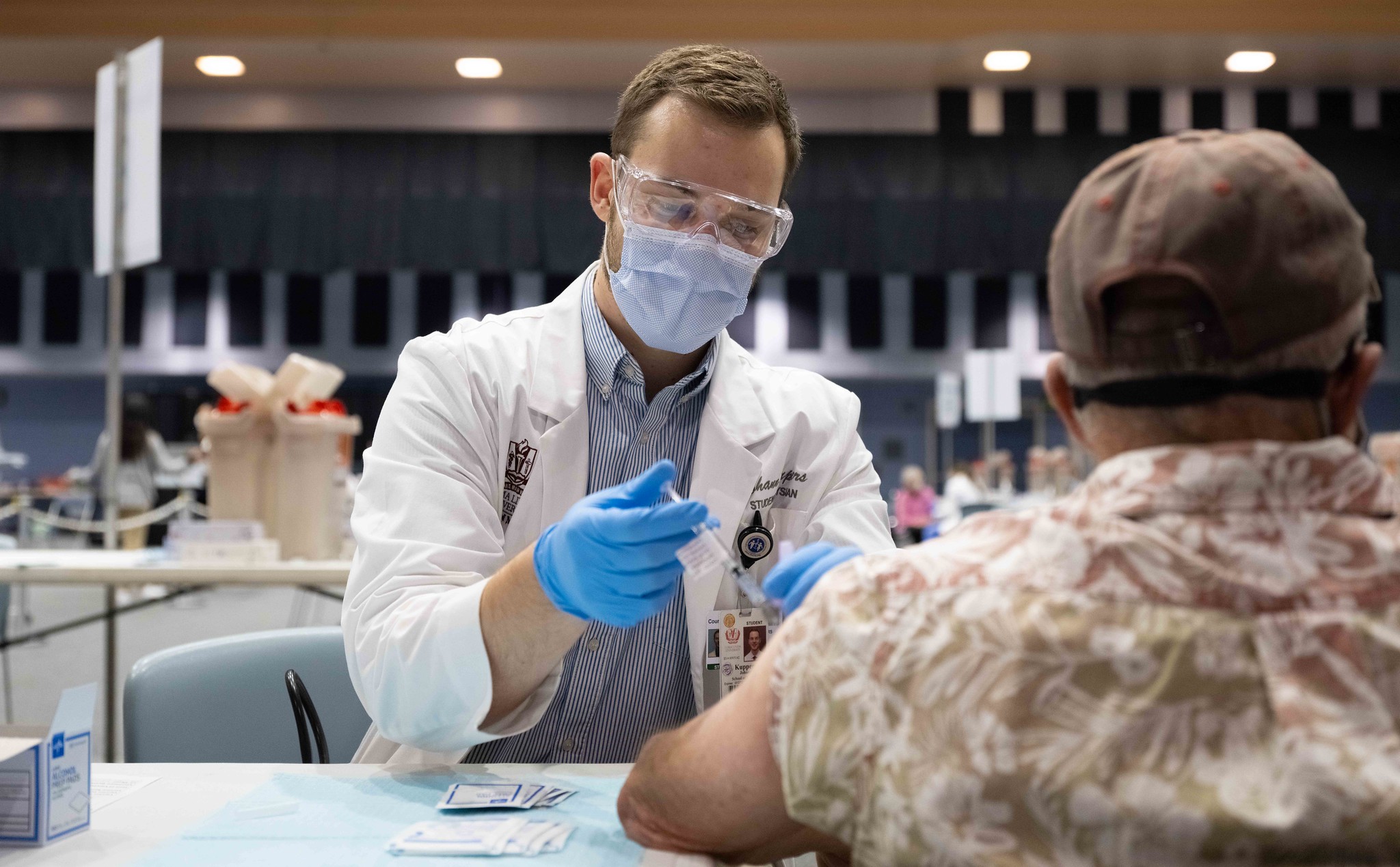Opinion
Despite Huge Pandemic-Driven Reductions In Road Traffic, Greenhouse Gas Emissions Not Expected To Decline Significantly

Short Term Effect ‘Won’t Last’; Commuting Is Only Driving Category Likely To Diminish Over The Long Term
The COVID-19 pandemic has caused an unprecedented shift in commuting and mobility patterns worldwide, something that has led to a false perception that the pandemic may be a boon to greenhouse gas reduction. A new analysis examines California’s GHG emissions before and after the viral outbreak and finds that despite significantly less road traffic in the state, long run emissions reductions are not likely to result from the crisis.
The report, released today by the UC Riverside School of Business Center for Economic Forecasting and Development, finds that while there will probably be a long term reduction in commuting to and from work as some workers shift permanently to online or work-from-home arrangements, the resulting reduction in GHG emissions will be small – estimated at just 2.4% in California. This metric is based on a number of factors including the relatively low share of wage and salary workers who can permanently perform their jobs from home, and the equally low share of GHG emissions that are attributable to commuting and passenger vehicles in general.
“When you add it all up, despite the startling and massive drop off we’ve seen in on-road vehicle traffic in recent months, the pandemic is not going to lead to a substantial decrease in GHG emissions over the long term in California or the nation at large,” said Hoyu Chong, Senior Researcher at the Center for Forecasting and the report’s author. “Although we will see a large decrease in GHG emissions from passenger vehicles in 2020, it’s a short-term effect.”
According to Chong, the report’s findings are also based on the fact that commuting is the only category of overall vehicle miles travelled (VMT) that will realistically experience an ongoing reduction. “Other reasons for driving such as for social or recreational purposes, shopping, personal errands, and other trips are not expected to decline long term, and in fact, driving to some destinations, such as grocery and pharmacy, have already returned to pre-pandemic levels,” said Chong.
Moreover, the analysis argues that the pandemic may pose a long-term risk to shared mobility, a critical component of California’s emissions reduction strategy. Public transit and ride sharing have become very unpopular since the viral outbreak began but it is unclear whether that will persist or whether usage will return to normal levels when the threat of COVID-19 ends.
While U.S. and California data are relatively scant, the report analyzes mobility behavior in countries that are currently at more advanced stages of reopening. In nations where most workers have returned to work, transit station patronage has resumed to a certain degree but remains far below pre-pandemic levels. Moreover, the decline in trips to transit stations is far more severe than the decline in trips to workplaces. Worldwide, as of the week of June 10 to June 14, compared to baseline levels, mobility to transit stations is down 34%, on average, while mobility to workplaces is down 18%.
Among its recommendations to meaningfully reduce emissions from passenger cars and trucks, the new analysis urges California policymakers and climate leaders to accelerate the electrification of motor vehicles on a large scale, expand infrastructure that makes walking and cycling viable alternative modes of transportation, and educate Californians more broadly about the full cost of driving.
The complete analysis, COVID-19, Commuting, and Clean Air: A Look at Pandemic Era Mobility and Transportation Emissions in California, is available here.
Opinion
Surge in Unemployment Among California Youth Linked to Minimum Wage Hikes

“We have to stop touting the minimum wage as a completely harmless policy, or as some kind of remedy for poverty and income inequality… it is neither.”
In the past 18 months, California’s unemployment rate has jumped to the highest in the nation and a new analysis by Beacon Economics suggests that this peculiar increase could be a direct result of the state’s recent minimum wage hikes. Most concerning, according to the report, is that the current unemployment effect is specifically harming some of California’s most vulnerable residents—the state’s youth.
The new report highlights the fact that 90% of newly unemployed Californians over the past year and a half are under the age of 35 with the hardest hit group being teenagers. “This loss of youth work opportunity carries with it real long-run harm,” said Christopher Thornberg, Founding Partner of Beacon Economics and co-author of the new analysis. “It not only denies younger workers a critical source of income it deprives them of work experience that has been empirically shown to improve their chances of long-run success.”
While the recent rise in unemployment in California has occurred in tandem with the state’s minimum wage hikes, the relationship likely extends beyond mere correlation. According to the analysis, the jump in unemployment is incongruous with other measures of the California economy, which have continued to expand at a respectable rate. In fact, both output and household income in the state are robust and growing either faster than or similar to the nation overall. Yet, the unemployment rate in the United States as a whole has barely budged in the past 24 months.
And there is yet another anomaly: throughout the recent rise in unemployment, there has been no corresponding increase in unemployment insurance claims. If laid off tech and entertainment industry workers were driving California’s higher unemployment rate, it would almost certainly be reflected, at least to some degree, in UI claims, according to the analysis.
“For far too long, researchers and advocates alike have held up the minimum wage as a harmless and effective policy remedy for poverty and income inequality, but it is neither of those things,” said Thornberg. “Evidence has shown us that minimum wages don’t do much to address the ills they are intended to correct, but carry a substantial cost, particularly for our state’s future workers.”
Although well intentioned, Thornberg, and co-author Niree Kodaverdian, argue that higher minimum wages cause prices to increase, which end up reducing real incomes for lower-skilled workers. Available data and past empirical studies show that wage floors do very little to divert income from higher income workers to lower income ones, which is how minimum wage laws are typically characterized by proponents.
The specific effect on youth is caused because as labor costs go up relative to other inputs, employers who might have used lower-skilled, entry level workers, such as teenagers, move towards hiring older, more experienced workers, according to the analysis. The idea is that if an employer is legally obligated to pay a higher wage, they will naturally hire more skilled and productive workers to offset higher labor costs. Since those under age 25 make up nearly half of minimum wage workers, this restructuring disproportionally affects the state’s youth.
The report firmly acknowledges the need for policies to help alleviate the strain on lower income households in pricey California but argues that this particular policy remedy doesn’t work as intended, and when pushed too far, can inflict real harm on some of the state’s most vulnerable residents. Better policy options, according to the authors, include the Earned Income Tax Credit, early childhood education, and increased training for lower-skilled adults.
The full analysis can be found here.
Health & Wellness
Conquering Hanger: Smart Strategies for Balanced Blood Sugar

Stay Energized and Focused with These Proactive Tips for Managing Hunger and Mood
Wellness Tips By Sarah Goudie, Nutrition Expert & Guest Writer for IEBJ
We’ve all been there: mornings rushed, constant pivots throughout the day, and suddenly it’s 7 pm with no thought given to food. Looking back on those moments, we all know what we resort to when we’re hangry.
Irritable. Scatterbrained. Shaky. Weak. Reduced impulse control. Tanked.
It’s simply the connection between our stomach and brain, as blood sugar levels can affect the release of hormones like adrenaline and cortisol, the fight or flight and stress hormones.
So, let’s address this blood sugar regulation/hangry cycle by taking care of ourselves in a few different ways.
- Prioritize Protein and Fat Before Your Morning Coffee: Your first meal sets the tone for the day ahead. Starting with protein before your coffee or favorite pastry can help stabilize blood sugar levels and provide satisfaction and sustenance. A handy tip: prepare a batch of hard-boiled eggs or protein pancakes on your day off for convenient grab-and-go options before you head out. Trust me, cold protein pancakes make for a quick and nutritious bite on your way to work! (Try the recipe below!)
- Opt for Balanced Meals: When you have a chance to eat, even if it’s not your ideal meal, prioritize finishing your protein first, followed by your veggies and fruits. If you’re including simple carbohydrates, save those for the end of your meal. This meal sequencing helps regulate blood sugar levels and mood.
- Plan Ahead—Even Days in Advance: Sometimes, waking up 15 minutes earlier isn’t enough to ensure a nourishing breakfast and packed lunch. However, planning earlier in the week can alleviate the morning rush before you start your day. I often create a menu tailored to my work week, carefully considering seasonal foods and my personal goals. While meal prepping is fantastic if you have the time and enjoy leftovers, simply having a plan and doing the shopping can empower you and reassure you that your kitchen is stocked and ready.
- Slow Down: The quality of the foods we eat is important (think locally sourced, sustainable, clean), but so is the timing of our meals, as well as our mood and our focus while eating. Be intentional about meal times—sit down, step away from your desk, TV, or phone, and fully immerse yourself in the experience of eating. Many times, we eat quickly without being mindful. If you must eat on the go, find a quiet spot, whether it’s a park bench or pulled over in your car. Take the time to see, smell, and taste your food.
- SNACK SMART: This last tip is bolded for good reason—it has been a lifesaver for me countless times. Pack snacks. Every day. ESPECIALLY WHEN TRAVELING. We never know what the day will bring, so we must be prepared when we can’t access a full meal. Some of my favorite go-to snacks include “That’s It” bars, “RX” bars, a handful of macadamia nuts, or Paleo Valley protein sticks…not to mention my favorite reusable water bottle (complete with a straw designed to fit perfectly in my car cup holder). Being armed with snacks containing essential nutrients (fat, carbs, protein, and fiber) will help you navigate those moments when you’re tempted to make a fast food run.
*On the topic of fast food: Stay tuned for next month’s article, where I’ll unveil my top picks for healthier alternatives on those unavoidable drive-thru days!
Leaning into these proactive steps can revolutionize your approach to mindful fuel for your body. Embracing protein-rich breakfasts, balanced meal strategies, proactive planning, mindful eating habits, and smart snacking choices nourishes your body. It cultivates a deeper connection with your food and overall well-being. You can take charge of your dietary journey, one thoughtful bite at a time, and savor the rewards of a healthier, more vibrant life.
Check out my favorite protein pancake recipe!
- Servings: 6 small pancakes
- 1 large banana
- 2 large eggs
- 1/2 tsp cinnamon
- 1 tablespoon coconut oil for pan
- 1 scoop of your preferred protein powder
- 1. Preheat skillet
- 2. Blend ingredients above
- 3. Use the coconut oil to prep the pan
- 4. Cook till golden brown
- 5. Serve warm, and add some fun toppings! My go-to toppings are hemp seeds, fresh seasonal fruit, a scoop of almond butter, and a drizzle of honey.
Career & Workplace
California Continues to Struggle with Labor Supply as Employment Expands Modestly

State’s Unemployment Rate Remains Highest In Nation
California’s labor market expanded modestly in April, with total nonfarm employment in the state growing by 5,200 positions over the month, according to an analysis released today by Beacon Economics. March’s gains were revised down to 18,200 in the latest numbers, a 10,100 decline from the preliminary estimate of 28,300.
As of April 2024, California has recovered all of the jobs that were lost in March and April 2020, and there are now 314,300 more people employed in the state compared to February 2020. Total nonfarm employment has grown 1.8% over this time compared to a 3.9% increase in the United States overall. California increased payrolls by 1.2% from April 2023 to April 2024, trailing the 1.8% increase nationally over the same period.
The state’s unemployment rate held steady at 5.3% in April 2024, unchanged from the previous month. California’s unemployment rate is the highest in the nation and remains elevated relative to the 3.9% rate in the United States as a whole. The state continues to struggle with its labor supply, which remained essentially unchanged in April (declining by a negligible 100). Since February 2020, California’s labor force has fallen by -246,200 workers, a -1.3% decline. In comparison, over the past twelve months the nation’s labor force has increased by 0.8%.
Industry Profile
- At the industry level, job gains were mixed in April. Health Care led the way with payrolls expanding by 10,100, an increase of 0.4% on a month-over-month basis. With these gains Health Care payrolls are now 13.6% above their pre-pandemic peak.
- Other sectors posting strong gains during the month were Transportation, Warehousing, and Utilities (3,700 or 0.4%), Leisure and Hospitality (3,100 or 0.2%), Government (2,600 or 0.1%), Education (1,800 or 0.4%), Retail Trade (1,000 or 0.1%), and Wholesale Trade (400 or 0.1%).
- Payrolls decreased a handful of sectors in April. Construction experienced the largest declines, with payrolls falling by -6,000, a contraction of -0.6% on a month-over-month basis. Note that this decline was largely due to late season storms affecting construction projects across the state.
- Other sectors posting significant declines during the month were Manufacturing (-5,300 or -0.4%), Professional, Scientific, and Technical Services (-3,600 or -0.3%), Real Estate (-700 or -0.2%), Finance and Insurance (-700 or -0.1%), Administrative Support (-600 or -0.1%), and Information (-600 or -0.1%).
Regional Profile
- Regionally, job gains were led by Southern California. Los Angeles (MD) saw the largest increase, where payrolls grew by 5,700 (0.2%) during the month. The Inland Empire (2,600 or 0.2%) and San Diego (1,200 or 0.1%) also saw their payrolls jump during the month. However, payrolls fell in Orange County (-2,700 or -0.2%), Ventura (-500 or -0.2%), and El Centro (-2,200 or -0.3%). Over the past year, El Centro (1.9%) has had the fastest job growth in the region, followed by the Inland Empire (1.5%), Ventura (1.4%), Orange County (1.1%), San Diego (0.8%), and Los Angeles (MD) (0.6%).
- In the Bay Area, the East Bay experienced the largest increase, with payrolls expanding by 2,600 (0.2%) positions in April. San Rafael (MD) (200 or 0.2%) and Napa (100 or 0.1%) also saw payrolls increase during the month. However, San Francisco (MD) (-1,700 or -0.1%), Santa Rosa (-600 or -0.3%), and Vallejo (-600 or -0.2%) experienced payroll declines during the month. Over the past 12 months, Vallejo (3.0%) enjoyed the fastest job growth in the region, followed by Santa Rosa (2.3%), Napa (2.2%), San Rafael (MD) (1.6%), the East Bay (0.9%), San Jose (0.2%), and San Francisco (MD) (-0.8%).
- In the Central Valley, Sacramento experienced the largest monthly increase as payrolls expanded by 900 (0.1%) positions in April. Payrolls in Yuba (400 or 0.8%), Bakersfield (300 or 0.1%), Fresno (300 or 0.1%), and Visalia (100 or 0.1%) increased as well. However, payrolls fell in Stockton (-500 or -0.2%), Modesto (-200 or -0.1%), Merced (-200 or -0.3%), Redding (-100 or -0.1%), and Hanford (-100 or -0.2%). Over the past year, Madera (5.7%) had the fastest growth, followed by Yuba (4.2%), Merced (3.7%), Modesto (3.6%), Sacramento (2.5%), Hanford (2.4%), Redding (2.3%), Fresno (2.2%), Visalia (2.1%), Stockton (2.0%), Chico (1.5%), and Bakersfield (1.1%).
- On California’s Central Coast, Salinas (200 or 0.1%) and Santa Cruz (200 or 0.2%) added the largest number of jobs during the month. Santa Barbara (-100 or -0.1%) saw payrolls decline. From April 2023 to April 2024, Salinas (1.9%) has added jobs at the fastest rate, followed by Santa Cruz (1.6%), Santa Barbara (0.8%), and San Luis Obispo (0.5%).
-

 Opinion1 month ago
Opinion1 month agoSurge in Unemployment Among California Youth Linked to Minimum Wage Hikes
-

 Commercial Real Estate Transactions3 weeks ago
Commercial Real Estate Transactions3 weeks agoSRS Real Estate Partners Announces Record-Breaking $6.15 Million Ground Lease Sale of a New Construction Chick-fil-A Property in Murrieta, California
-

 Health & Wellness3 weeks ago
Health & Wellness3 weeks agoBuddha Bars: A Mother’s Innovative Solution to Healthy Snacking
-
By Press Release1 week ago
California Employment Expansion Continues But Still Trails Nation










